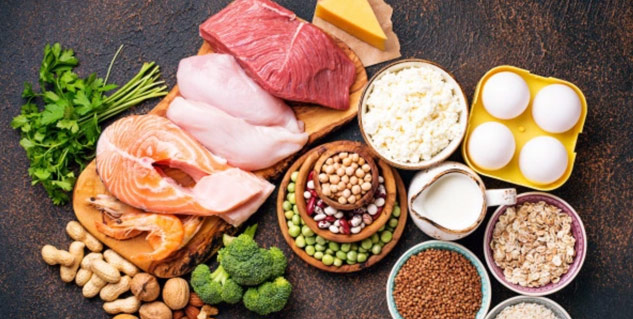
Genetics is the most important factor when it comes to height. However, there is one more thing that’s the next best and it is, nutrition, and in particular protein, especially in children and adolescents. Protein has been referred to as the building block of life, and so it should be, given its role in maintaining bone health, muscle growth, and producing growth hormones. But we often think if protein can actually help us grow taller.
Table of Content:-
In an exclusive interview with the editorial team of Onlymyhealth, our expert, Dr Bhumesh Tyagi, General Physician and Internal Medicine Specialist, Shardacare, Health City - Noida, helped us find our answers. Here is what he shared with us.
Protein and Growth Hormones
Proteins consist of amino acids, some of which are necessary since the body cannot synthesise them. These amino acids are responsible for the release of growth hormones, such as Human Growth Hormone (HGH) and Insulin-Like Growth Factor 1 (IGF-1), which are crucial in bone lengthening and development. Without sufficient protein, these functions become compromised and may impact development in growing children and adolescents.
“Good bones are the secret to reaching one's full height potential. Protein aids calcium absorption and makes the bone matrix stronger, which is vital at growth spurts,” Dr Tyagi explained. Some studies have indicated that children who have protein-rich diets fare better in terms of growth when compared to children who have protein deficiencies.
Also Read: Glaucoma Warning Signs: Ophthalmologist Shares 5 Common Red Flags You Shouldn't Ignore

Best Sources of Protein for Growth
Here are some expert-approved sources of protein for growth you should add in the diet today:
- Animal-derived proteins: Eggs, lean meats, poultry, fish, and dairy are complete proteins because they contain all the essential amino acids.
- Plant-derived proteins: Beans, lentils, soy, quinoa, nuts, and seeds may also be good sources, particularly when paired to provide a complete amino acid complement.
How Much Protein is Needed?
Recommended Dietary Allowance (RDA) for protein depends on age and body weight. Here is a quick guide:
- Children aged 4 to 13 years: 0.95 g per kg of body weight
- Teenagers aged 14 to 18 years: 0.85 g per kg of body weight
- Adults: 0.8 g per kg of body weight
It is normally sufficient to meet these needs using a balanced diet in order to ensure healthy growth and development.

Can Protein Alone Make You Taller?
“While protein is critical in achieving your maximum genetic height potential, it won't enable you to grow taller than your genes allow. Proper protein helps avoid stunted growth and promote bones and muscles to develop well, but height is a mixture of genetics, nutrition, hormones, and lifestyle choices like sleep and exercise,” Dr Tyagi noted.
Bottomline
Protein is important in sustaining growth and optimising height potential in the growing years. A diet with an intake of animal and plant proteins in balance, along with good sleeping habits, exercise, and adequate nutrition, provides the body with its best opportunity to reach its full height. After growth plates are closed following adolescence, protein or any nutrient cannot add height anymore, it only serves to develop healthy muscles and bones for life.
How we keep this article up to date:
We work with experts and keep a close eye on the latest in health and wellness. Whenever there is a new research or helpful information, we update our articles with accurate and useful advice.
Current Version